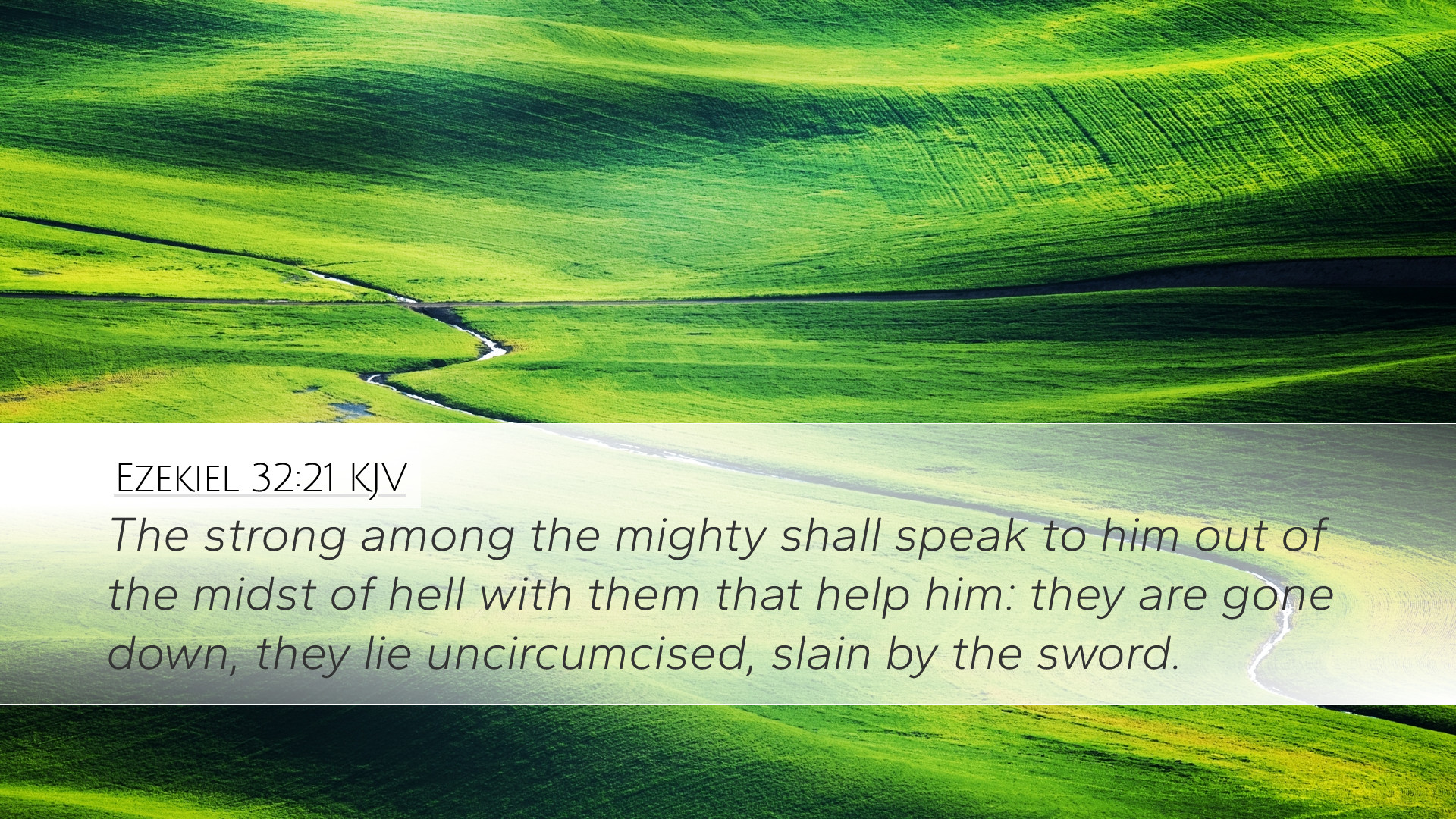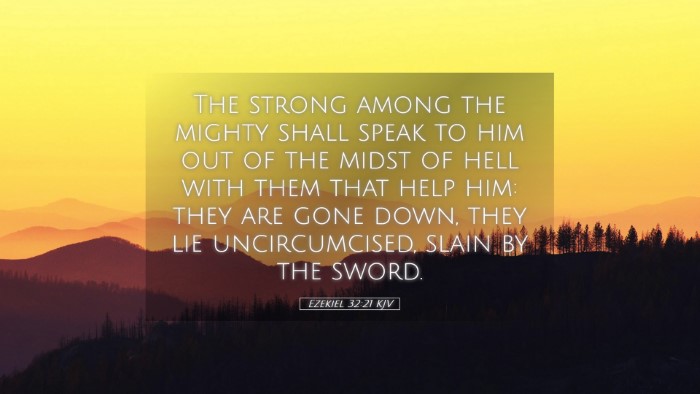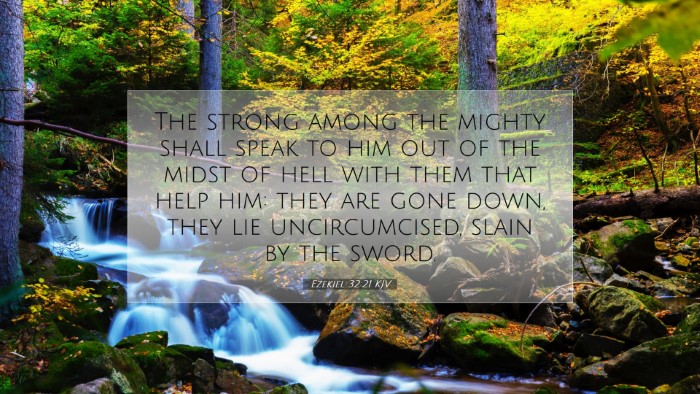Ezekiel 32:21 Commentary
Verse: "The strong among the mighty shall speak to him out of the midst of hell with them that help him: they are gone down, they lie uncircumcised, slain by the sword."
Context and Overview
The Book of Ezekiel, authored by the prophet Ezekiel during the Babylonian exile, contains prophetic visions and messages that often speak to the judgment of nations and the hope of restoration. Ezekiel 32 specifically addresses the fate of Egypt, using vivid imagery to describe God's impending judgment and the resulting desolation.
Exegetical Insights
This particular verse reflects Ezekiel’s representation of death and the afterlife, where the mighty of the earth are portrayed as communicating in death. It emphasizes the dire consequences of pride and rebellion against God, showcasing the fate of Egypt as a nation that would soon experience devastation.
Commentary Insights
- Matthew Henry: In his commentary, Henry points out that the strong among the mighty refers to the rulers and warriors of Egypt who, despite their power in life, find themselves humbled and stripped of their majesty in death. They are now equals in infernal realms, reinforcing the theme that earthly power cannot shield one from divine judgment.
- Albert Barnes: Barnes elucidates that the phrase "out of the midst of hell" signifies the grave or the realm of the dead, indicating a place where the dead exist without hope. He argues that this verse serves as a stark warning that even the mightiest will find themselves powerless before the sovereignty of God.
- Adam Clarke: Clarke elaborates on the term "uncircumcised," a metaphor indicating spiritual alienation from God. He interprets it as a reference to those who have not participated in the covenant of God, thus emphasizing a lost condition that befalls Egypt's leaders.
Theological Reflections
The verse poses profound theological implications regarding the nature of power and mortality. It serves as a reminder of the temporal nature of earthly grandeur. The strong, in death, are no longer strong; they lie defeated and filleted of their pride. This triumph of divine justice over human arrogance is a central theme of the biblical narrative.
Life Application
For pastors and theologians, the exploration of this passage highlights several key applications:
- The futility of human pride: The strong, viewed as invincible in life, become powerless in death. This serves as a caution to examine one's own standing before God, encouraging humility and reliance on divine grace.
- The certitude of divine judgment: This verse reminds believers of the certainty that every nation and individual will face God. While Egypt represented a specific nation, the truth encapsulated here extends to all societies that resist God’s authority.
- Hope amidst despair: Although the passage details judgment, it also opens space for reflecting on restoration and renewed covenant relationships that Ezekiel speaks to in other parts of his prophecy.
Conclusion
In summary, Ezekiel 32:21 stands as a poignant illustration of lost power and divine justice. It invites believers and scholars alike to reflect on the nature of their own lives in relation to God’s sovereignty. The merging of insights from various public domain commentaries aids in appreciating the layered meanings within this verse, providing a foundation for preaching, teaching, and personal study.


